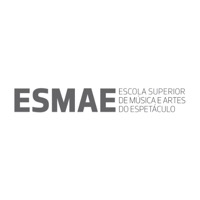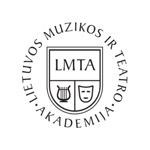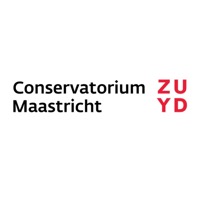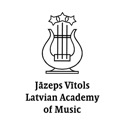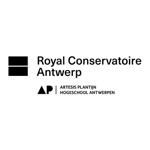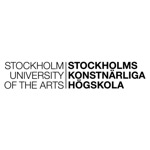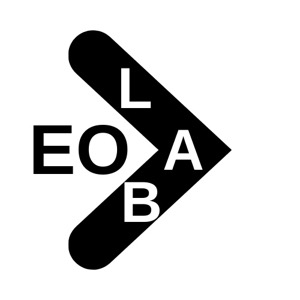Intensive Study Programs
In the three Intensive study Programs, educators and students from the EOALAB partners were invited to participate in practical, hands-on workshops, pannel discussions and lectures to reflect on new ways of dealing with innovation in Opera and Opera Education. New approaches have been discussed and tried out in workshops.
This workgroup on the Innovation in Opera (and its implications on Higher Opera Education) hosted alongside these Intensive Study Programs, physical and online meetings and discussions between the three participating Higher Education Institutes.
These ISPs and meetings resulted in the recommendations and publications you can find on this website.
Maastricht (NL) June 28 - July 2, 2019
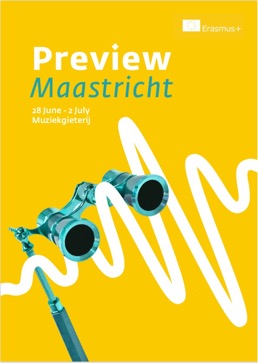
Preview Maastricht is held in conjunction with the “Opera in the Making” module offered within the EOA program, and the Music Theatre Festival M4, both organised by Conservatorium Maastricht. The module and the festival explore new developments within the art form of opera and encourage the spirit of the musicians as makers.
Teachers and students from Maastricht, Vilnius, and Porto, together with external experts related to opera, will reflect and research about new approaches to opera. Join us during talks, workshops, and panel discussions that will serve to identify the challenges in the opera and music theatre field for the opera makers of today and tomorrow. Singers, composers, actors and directors will assure the global vision that this genre, interdisciplinary art form par excellence, demands from their creators.
EOALAB CREATIVE Workshops
The Experimental Opera Incubator is open to students from the European Opera Academy partner institutions – singers, composers, music performers, musical theatre/opera directors, actors and other artists who are willing to work in interdisciplinary teams and are able to develop strong creative concepts that will challenge the boundaries of the traditional opera genre.
Students will be motivated to create individual or collaborative concepts that will enable further development of a short opera, performing arts production, sound or interdisciplinary art installation or performance, contemporary music theatre, musical action or any other multi-disciplinary work that discovers new ways of artistic expression and/or creates new audiences.
Workshops: Movement/Improvisation / Acting
Workshops: Collaboration and co-creation: opera as a group sport
Workshops: Create contemporary repertoire and renew standard repertoire
Workshops: Movement/Improvisation/Acting
The workshops were given by educators of the three participating Higher Education Institutes.
Panel discussion: how to deal in education with the changes in the current opera practice
Panel discussion: The state of the opera today and it’s implications on music education
Panel discussion: Live experiences from the creators of 4 new operas
Presentations of the 4 new Chamber Operas
You can find the extensive program in our Publications.
Vilnius (Lithuania) January 19-24 2020
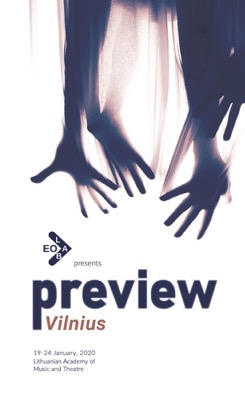
Same old, same new? The opera market between avantgarde and tradition.
A lecture by by Susanne Schimmack (Conservatorium Maastricht ZUYD).As part of her contribution to the EOALAB project, Susanne currently researches opera markets focusing on the German market. Having shared her concept of deconstruction/reconstruction of repertoire, her presentation will evolve around insights from her study of the market, including statistics of theatres and opera houses in Germany. Which market trends can be seen regarding programming, in large opera houses versus smaller companies? What are recent developments regarding opera audiences? How is contemporary opera reflected in the market? And finally, what conclusions can we draw towards the market's future and what are implications for opera makers? Rather than trying to predict the future, the presentation will provide food for thought and inspirational hints.
Getting “e-motional”
A workshop by António Salgado and Claire Binyon (ESMAE)This workshop combines a series of body movement and vocal exercises that aim to enable sing- ers to connect themselves with their voices and their emotions. Within an improvising methodology, the singers will learn, from the personal and collective experience of different emotional states, to express different emotions and moods through vocal sound, postures and body gesture. Based on Ideokinetic method, on emotional imagery and on evidence of performative cues of emotions within music structure, which are a result of performance studies Investigation over the last years, a series of exercises will be suggested to the singers and the students of singing. This series of exercises propose the use of a set of music intervals (or short musical cells and/or musical phrases) with which each singer, or participant, will be invited to produce an emotional sound-voice connected to a corporal gesture (body and/or face) and body posture. This way, the singer will try to be able to express and identify the intended emotion and the intended emotional meaning for him/herself and the others. This embodied emotion will be worked-out by the singer as a means of emotional communication between himself and the other singers and the audience itself. As a goal of the exercises a kinetic-musical monologue, dialogue, or multilogue, will happen through vocal gestures, facial expressions, corporal movements and body postures intended to express the different embodied emotional states and meanings musically conveyed.
The purpose of this workshop is to ‘experiment’ with singers and other performers, through body movement, improvisation, vocality and the arousing of emotions, a new approach to Opera and Opera making that clearly contradicts the line of dehumanized thought of opera writing, composing and making that could be found in a great part of opera making, writing or composing, over the last decades. This kind of ‘new acting’ through joint experimentation will enable the singers/performers to better connect themselves with their bodies and the bodies of the others, voices and emotions, as well as it will bring them a better understanding of what should be the meaning and the act of making new opera nowadays.
Library of moments
A workshop by Joachim Junghanss (ZUYD)Which role can collective improvisation play in new opera creation? How can we use collective improvisation to develop new repertoire? This workshop focusses on creation through collabora- tive making in the moment and reflection on the development process using improvisation practice.
Opera as art in between
A lecture by Peter Missotten (ZUYD)Opera has always been an intermedial art: a crossover between theatre and music. As such, it has always been keen on embracing the best and newest evolutions in both art worlds. The most controversial theatre experiments happen in huge opera productions (Christoph Schlingensief in Bayreuth? Romeo Castellucci in Aix? Bill Viola in Paris?... the list is endless...). For contemporary composers and directors alike, creating a new opera is one of the highlights of their career. Strangely, that reality is in juxtaposition with its reputation as an old fashioned, bourgeois, museum-art. Even among musicians and singers, the image of opera as a red-velvet home of conservatisme, is widely embraced. That may be true for some provincial, smaller scale venues, but not for the front of the pack. In opera, something really strange is going on: huge opera houses lead the avant garde and take enormous artistic risks, while most smaller houses remain closer to the tradi- tions of a long gone past. This reversal of the position of the avant garde, is due to the intermedial position of opera as an art medium. It has always been upfront in embracing new technologies. Subtitling (or better, super-titling) opera for example is now the international norm, and it has silently revolutionised it’s art form. In this lecture and following debate, Peter Missotten will try to illustrate with lot’s of examples, that opera is undeniably the art of the future and not some overdue reminiscent of a past long gone. Because opera has always been ‘an art in between’.
You can find the extensive program in our Publications.
Porto (P) September 29 - October 1, 2021 ONLINE
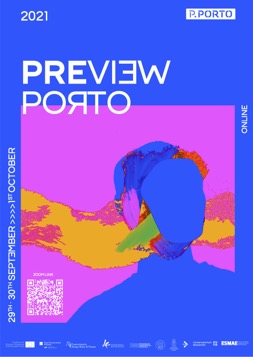
Building up to the Intensive Study program, hosted online by Porto (Sept. 2021), participating students were invited to produce an online, 3 minutes opera. As an inspiration, a theme of repertoire opera was provided to each group. These 8 small scale online operas have been presented during the three days of the online Intensive Study Program, and discussed by the participants and the external experts from the field of opera.
Alongside these presentations and critical discussions, online expert meetings have been organised.
Opera Today: the new challenges and break throughs. A discussion with the Austrian composer Bernhard Lang, António Salgado (ESMAE Porto), Marcin Habela (HEM Geneva) and Daniel Moreira (ESMAE Porto) on the subjects in opera and the connection with society.Moderated by Susanne van Els.
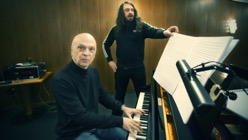 Opera used to be a means of representation. This raises the question what it means to create an opera today. And if the connection is made with this new medium of video, one should be looking maybe for a new definition of opera, and stay away from the video being a teaser of a ‘traditional’ opera, but use its artistic uniqueness.
Opera used to be a means of representation. This raises the question what it means to create an opera today. And if the connection is made with this new medium of video, one should be looking maybe for a new definition of opera, and stay away from the video being a teaser of a ‘traditional’ opera, but use its artistic uniqueness.
In order to make a connection with the here and now, some directors have started using actual texts, derived from everyday situations, or from news, from leaders like Trump. They took the words spoken and made a libretto out of it. The libretto thus refers to reality.
Opera has always been a political medium and remains to be so. To be together in the same space, already defines opera as a societal act. Opera can be provocative in the way it uses media and content. Authenticity is getting more and more important: real lives function as mirror for society. The audience wants to see themselves reflected on stage. Therefore the creation of a micro opera, building on a theme from an existing opera made them aware of the relationship of tradition with the world of today. In new opera the presentation of the stories and roles, the singer needs to show authenticity. This is at the heart of connecting opera with society, to make it relevant for today's audience. Photo Bernhard Lang with Jonathan Meese © Jan Bauer
A conversation with Guy Coolen (Muziektheater Transparant Antwerp and the O-festival in Rotterdam) on the future of opera as seen by companies and festivals
Moderated by Martin Hellström (Units Stockholm)
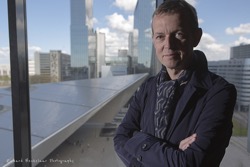 Contemporary like to challenge the singers to work with their voices in a different way, in fact it is about developing different voice types. Besides that the opera is no longer uniquely title- or director-driven: the singer has gotten a more important role in launching ideas for creations. They indirectly also start to teach the composers and have a bigger voice in the composition. Because there were only few places at the big operas houses, many singers and composers started working with different material, founding own ensembles or structures, and started working outside the traditional opera houses. Sometimes they even work on site. The third challenge in new opera is reaching new and younger audiences, which means that you ignore the threshold to the big opera houses, but make opera accessible, both through the location and through the different voices and cross disciplinarity with other arts forms.
Contemporary like to challenge the singers to work with their voices in a different way, in fact it is about developing different voice types. Besides that the opera is no longer uniquely title- or director-driven: the singer has gotten a more important role in launching ideas for creations. They indirectly also start to teach the composers and have a bigger voice in the composition. Because there were only few places at the big operas houses, many singers and composers started working with different material, founding own ensembles or structures, and started working outside the traditional opera houses. Sometimes they even work on site. The third challenge in new opera is reaching new and younger audiences, which means that you ignore the threshold to the big opera houses, but make opera accessible, both through the location and through the different voices and cross disciplinarity with other arts forms.
For HEI’s it is important to include different singing methods, of course focus on good singing techniques, but give space to other voice types, and contemporary singing. But also to seek for the cross disciplinarity with other art forms, that should be brought into education, and not after the school’s done. Co-creation is important, so the openness to mingle with other sectors and collaborate with your peers, is of value. Students should also watch a lot of work, get to know what’s happening, because that’s also about learning. Composers should broaden the perception of what a composition is, have an eye for contemporary issues like climate crisis etcetera. Photo Guy Coolen © Richard Breukelaar 2015
A conversation with the American/Dutch opera singer Claron McFadden on Singing in new opera’s from the singer’s perspective
Moderated by Miriam Pascual-Benavent (EOA) and Peter Missotten (technologydrivenart.org ZUYD)
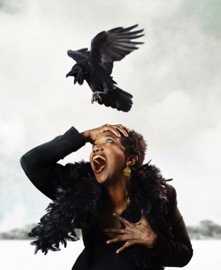 There seems to be misunderstandings about the role of singers in new opera’s and the way they use vocal techniques. Singers sometimes tend to prefer classical work over new work, because this with new operas there are no examples; there is nothing to fall back to, and the perfection may not be achieved. On the other, it gives the singer a bigger role: he can get in dialogue with the – living – composer about what is meant, and about what’s being expressed with the composition. For a singer this might look like another use of technique, but if the basis is good, it’s almost like learning other languages, one uses the voice in different ways. Also the composer might learn something from the singer and the way the voice can be used: not in terms of range per se, but in the way the voice needs to express something and what range that fits in. It’s important for composers to find their creative and artistic voice, and be able to create a framework for the voice. Technology has been introduced and this can have a role in supporting the voice -amplification – as well as play a role when it comes to content, structure etcetera.
There seems to be misunderstandings about the role of singers in new opera’s and the way they use vocal techniques. Singers sometimes tend to prefer classical work over new work, because this with new operas there are no examples; there is nothing to fall back to, and the perfection may not be achieved. On the other, it gives the singer a bigger role: he can get in dialogue with the – living – composer about what is meant, and about what’s being expressed with the composition. For a singer this might look like another use of technique, but if the basis is good, it’s almost like learning other languages, one uses the voice in different ways. Also the composer might learn something from the singer and the way the voice can be used: not in terms of range per se, but in the way the voice needs to express something and what range that fits in. It’s important for composers to find their creative and artistic voice, and be able to create a framework for the voice. Technology has been introduced and this can have a role in supporting the voice -amplification – as well as play a role when it comes to content, structure etcetera.
For HEI’s it is therefore important to first train the voice in a healthy way. This is the basis for everything. From there the student should differ in styles, this should actively be presented to them. Another important aspect is the physicality; the student should be trained in the combination of body and voice, which could may created by making hem improvise, give them free space. Students must have the opportunities to experiment. A third important element is develop an attitude, which has to do with knowing the possibilities and the limits of one’s own voice, so it is possible to exchange with a composer what is feasible and what not. Photo © claronmcfadden.com
You can find the extensive program in our Publications.




